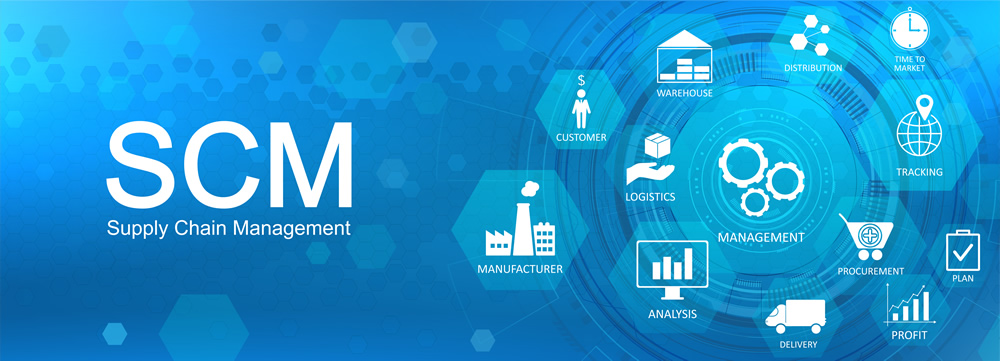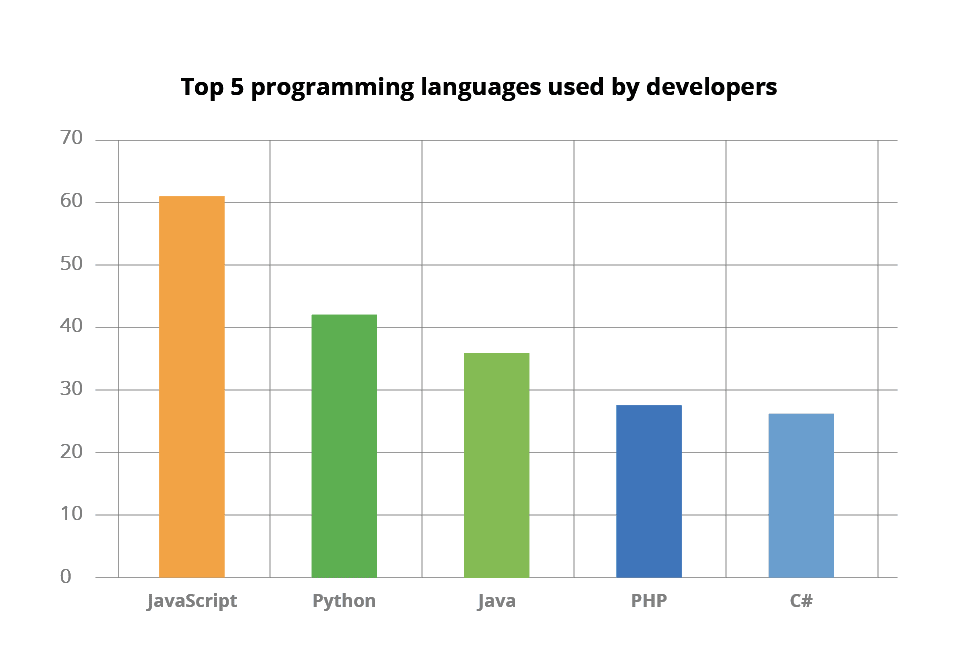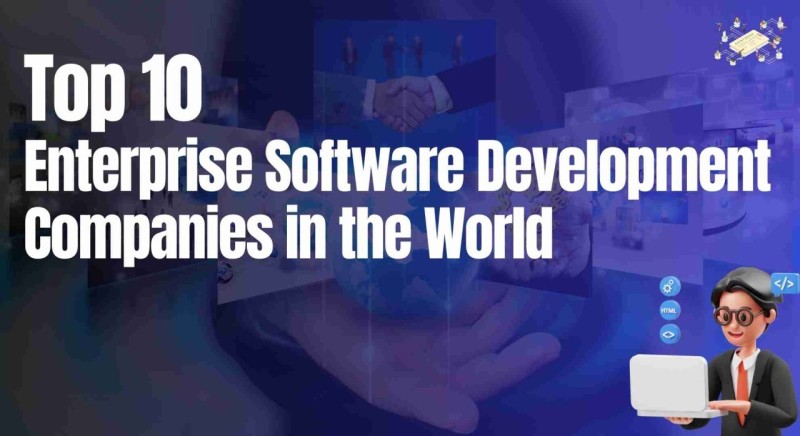Enterprise software solutions: Infrastructure and technology firms are always looking for new and efficient ways to upgrade and modernize their legacy systems so they can keep up with the speed at which digital transformation is happening today.
Indeed, the enterprise software market is expected to generate an astounding $292 billion in sales by 2024. Because of this rapid exponential expansion, enterprise software development firms are under a lot of pressure to close the gap between traditional approaches and the changing needs of the industry.
However, before you begin creating corporate software, there's one important issue you must have answered: what exactly are enterprise bespoke software development services? Enterprise Software Solutions Development Company What distinguishes it from traditional software development methods? Simply put, enterprise software serves as the foundation for digitalized procedures and user interfaces that prioritize simplifying complex business requirements while bolstering their durability and adaptability. In this blog, let's delve into the intricacies of corporate custom software development services.
Best Practices for Enterprise Software Solutions Development
What is enterprise software?
Large companies employ software development outsourcing services to support complex organizational procedures and processes.
The goal is to give access from several departments or locations inside a company to a single platform that unifies finance, human resources, supply chain management, and customer relationship management, among other diverse business functions.
Enterprise software development includes features like security, analytics, centralized data storage, and reporting capabilities. A few notable examples of enterprise software are as follows:
- Software for enterprise resource planning, or ERP
- Systems for managing customer relationships, or CRMs
- Software for supply chains
- Systems for managing human resources (HRMS)
For your software projects, why pick an enterprise software development company?
Hiring a custom enterprise software development company has various benefits for your business. The main advantage is that your business will become more operationally efficient.
One of the most popular uses of business software is to automate laborious tasks between departments. Automating these processes typically saves 50% of the time and 10% to 50% of the costs.
Improved data management is one of the key benefits of developing enterprise software. Let's now take a closer look at the benefits of developing custom software for businesses.
Improved Collaboration
With the use of business software, staff members can rapidly communicate and exchange information. This also helps to break down departmental barriers, promote better teamwork, and enable more informed decisions and efficient problem-solving.
Simplified business processes
The Enterprise Software Development Company streamlines business processes by combining multiple functions into a single platform. Hiring custom software development firms in the United States leads to increased output and operational effectiveness.
Think about an ERP system, which simplifies financial reporting and inventory management, and a CRM system, which promotes more efficient customer data management and engagement. As a result, businesses may save money and cut costs.
Enhanced Security
Companies that deal with sensitive data, such as credit card or client information, must be mindful of online risks and ensure that their company software fortifies security measures.
Hire a specialized enterprise software development company as well to ensure complete security for your apps.
Complete Data Understanding
Management can obtain real-time data using business software, enabling them to make well-informed decisions.
ERP software development services, thus, will have real-time inventory information; as a result, companies can reduce expenses and optimize supply chain efficiency.
Similar to this, a CRM system provides businesses with information on their customers' tastes and habits, allowing them to improve customer satisfaction and tailor their offerings.
Read also: Enterprise Data Management Services
The ability to scale
Enterprise software may expand to accommodate more users and more data storage, just as businesses do. In this approach, organizations can save money on expensive system updates or replacements.

Crucial elements for developing any enterprise application
Some essential features shared by all platforms used in enterprise application creation are as follows:
1. Safety
Important measures to protect sensitive data include advanced threat detection, strong firewalls, multi-factor authentication, reliable password policies, secure data centers, backup and disaster recovery plans, HTTPS encryption, and IP login limitations.
2. Expandable
As your business grows, the platform should be scalable to handle increasing amounts of data, users, and workload. It should make enormous data streams—including Internet of Things data—possible for business expansion.
3. Consolidation
The platform's smooth integration with other corporate platforms and ability to operate as a consolidated data hub are guaranteed by the enterprise software development company.
To ensure that judgments are well-informed, it should automate processes, synchronize data in real-time, and facilitate departmental data sharing.
4. Reports and analytics
Look for features that provide information on market trends, user behavior, and operational efficiency. Analytics solutions empower decision-makers to accelerate business success.
5. Cloud-based access
With cloud access, users may log in from anywhere, which improves flexibility and convenience. Using user access controls, enterprise software development companies should be able to limit access to platform data.
Enterprise Software Types
1. ERP, or enterprise resource planning
An organization can utilize ERP software development services to manage the following kinds of resources. They cover a wide range of industries, including manufacturing, supply chain, logistics, finance, and warehousing.
By integrating numerous business functions, ERP gives complete control over the entire company and enhances business performance. Having your company's business processes automated by custom ERP software development packages also saved time and money.
But eventually, this also entails monitoring overall costs for business operations, which leads to almost complete cost control.
Read also: What Can Enterprise Learning Do for Your Business?
2. Customer relationship management software, or CRM
Nonetheless, client relationship management is facilitated by CRM creation services. Utilizing these IT systems entails gathering, storing, and interpreting customer data in order to ascertain their requirements and preferences and modify corporate procedures accordingly.
The major goals of utilizing CRM systems are as follows:
- Customer acquisition and retention: CRM systems make it feasible to track customer communications, which makes it possible to personalize services. This makes it easier to attract and keep clients.
- Improved client assistance: Employees who have access to customer data are better able to understand their customers' wants and preferences, address their complaints, and respond to their questions and issues in a timely manner.
- Increase sales: By providing employees with access to client preferences and purchase history, CRM systems enable improved management of the sales process and the capacity to identify and capitalize on sales prospects more successfully.
- Data Analysis: CRM systems allow you to collect and examine customer data. This phase makes it simple for you to match business items with consumer demand. Furthermore, by identifying trends and potential business opportunities, data-driven decisions help you move forward. Predictive analysis decisions are included in this.

3. CMSs, or content management systems
You may manage the content of web pages with content management systems, which are custom software development services. Digital information production, modification, and dissemination are made possible by content management systems. Their graphical user interface makes them simple to use, even for non-techies to administer.
Because they have internal back-end components, they also offer content management for both previously published and newly developed content. Enterprise Software Solutions Development Company Every activity's foundational steps make labor more comfortable.
We may discover other features that contemporary content management systems provide; thus, we may take into account features like user and access control, content editing tools, content version control, and personalization. Additionally, by integrating these systems with sales, internal or external search, marketing automation and optimization, and site traffic analysis, their utility may be increased.
Another category of enterprise software development services in the USA includes WordPress, Drupal, Joomla, and Magento. These are widely used content management systems with a range of functions.
Ultimately, the selection of the CMS to be utilized as corporate software would be narrowed down by the needs and goals of a specific project or web development process.
4. Enterprise Asset Management (EAM)
Enterprise asset management, or EAM, is another enterprise software development service. They handle assets owned by the company, such as machinery, equipment, and plants. Their primary goals are to maximize resource usage, increase longevity, and minimize maintenance expenses.
What would this entail? With the use of EAM systems, a business or organization may keep track of every detail regarding an asset's life, from the day it was purchased to any usage or maintenance it may have had to the day it is finally retired.
By avoiding breakdowns and inspections, making routine maintenance scheduling and execution easier helps lower the cost of repairs and downtime.
5. Software for business intelligence, or simply BI
Businesses use software development outsourcing services, such as business intelligence, to increase productivity and competitiveness.
This will allow them to use BI software to gather, analyze, and present business information in a simpler and more comprehensible manner. Enterprise Software Solutions Development Company Crucially, business intelligence tools enable them to handle massive amounts of data in a matter of seconds, enabling them to react swiftly to shifting market conditions.
Using business intelligence software such as Tableau or Microsoft Power BI, an organization can make well-informed decisions based on concrete facts and market trends.
Read also: Why Is Social Enterprise Important?
6. Enterprise supply chain management software (SCM)
Supply chain management, or SCM, might benefit from the assistance of an enterprise software development company. To restructure and optimize their whole supply chain, including the manufacturing process, distribution, warehousing, and procurement, businesses can leverage supply chain management systems.
Additionally, corporate procedures, planning, and real-time observation are greatly streamlined with the help of the software, enabling quick organizational response to market developments.
However, SCM software also makes cost management easier, which helps to solve the issue of orders not being processed on time and deliveries not arriving.

7. Software solutions for business communication
Since the dawn of the digital age, instant messaging has established itself as a standard practice in several firms, even for team collaboration. Contemporary industrial communicators offer numerous advantages for corporate communication and are fully linked with current operating software.
They restrict email correspondence, answer quickly, and make information flow easier. In the workplace, group discussions on certain topics or projects are typically beneficial. Team communication technologies increase output and knowledge of company behavior.
8. Business payroll management software
Payroll administration is necessary for any organization, but without the proper resources, it can become difficult. Fortunately, payroll management business software comes to the rescue by automating tedious computing processes such as salary computations, employee compensation, taxes, and other HR-related duties.
This business software development service saves much-needed time and effort while assisting in ensuring correctness and legal compliance.
The business may also handle employee data more proficiently thanks to the payroll management enterprise software, including contact details, personal information, job history, successfully passed exams, finished courses, and qualifications.
9. Software for Project Management
Project management software is an additional instance of bespoke software development services. It provides teams with a central platform to interact, share information, and monitor progress toward objectives, guiding an organization through the project's planning, execution, and monitoring phases.
Task management, scheduling, collaboration, project tracking, and reporting would all fall under this category; these are all distinct project management software modules.
Teams can assign tasks and deadlines, divide large projects into smaller ones, and monitor progress in real time with this kind of software.
10. Software for Human Resource Management (HRMS)
Human resource custom software development consulting services are needed by large firms with many personnel, each with its own department dedicated to hiring, promoting, terminating, retiring, and providing leaves.
Consequently, the company may be situated in an area with complex labor laws, which, if broken, could have detrimental effects on the company's finances or legal standing.
For these and other reasons, the majority of firms require specialized software for HR specialists to efficiently handle their duties.
What difficulties arise when developing enterprise applications?
When developing enterprise apps, the following issues need to be addressed:
1. Antiquated Systems
Utilizing legacy systems is difficult since they are not compatible with modern technology or business processes due to their frequent modifications.
They waste resources and result in unnecessary cost and technical debt because they are difficult to maintain without the human involvement of skilled top custom software development firms due to their poor code, poor structures, and lack of documentation.
2. Limited cooperation between IT and business
When company objectives diverge, it becomes challenging to align IT and business initiatives. Furthermore, solutions that at first seem practical may wind up being burdensome, forcing companies to turn to risky shadow IT.
As a result, improved productivity follow-through, better applications, and improved business-IT alignment.
3. Limited Number of Developers
Talented individuals are in short supply compared to the strong demand for enterprise software development companies. Most developers spend more time troubleshooting code or even maintaining legacy systems than they do improving their own skills. Employee burnout and attrition from the company are frequent outcomes of this pressure to lead digital transitions.

4. Insufficient Organizational Adaptability
A corporation that lacks flexibility develops all of its applications in silos, which drives up costs, slows down operations, and results in
FAQ's: Enterprise Software Solutions Development Company
What does an enterprise software developer do?
Rather than creating software for the consumer market, enterprise software developers often work on planning, developing, implementing, and supporting systems and applications for usage by organizations.
What are enterprise software companies?
Enterprise software is a type of computer program designed to help large organizations with a variety of tasks, including customer support, sales and marketing management, data analysis, and many more. These solutions are often very scalable and capable of integration, intended to cater to a broad user base.
What is enterprise solution development?
Enterprise solutions exchange data between different business process areas and associated databases to integrate different aspects of a company's operations.
What is an enterprise app development company?
The process of developing specialized software for enterprise applications aids in task automation, workflow optimization, and productivity and efficiency gains for entire businesses. Find out how it helps developers to maximize the technology already in place inside an organization and adjust to evolving business requirements.
What are the three types of enterprise software?
primary categories of business software. Supply chain management (SCM), enterprise resource planning (ERP), and customer relationships management (CRM) are the three primary categories of enterprise systems.






